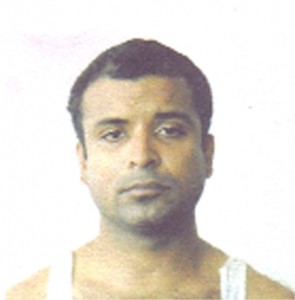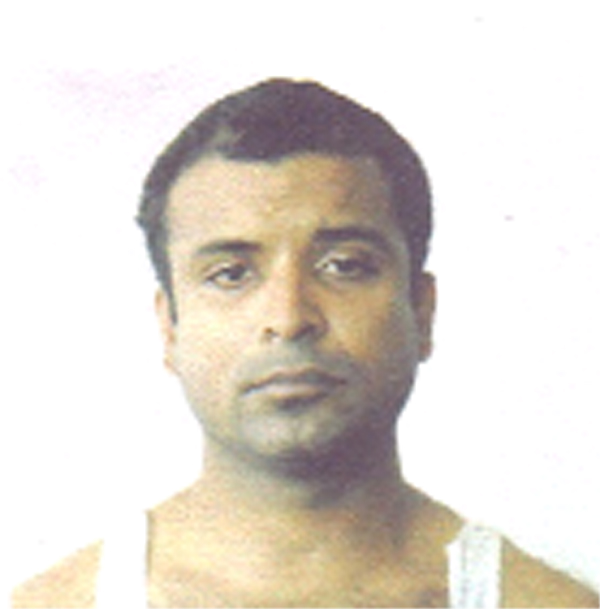President Bharrat Jagdeo yesterday said local authorities are obligated to investigate confessed drug kingpin Roger Khan’s activities in Guyana, including his alleged involvement in execution killings and extensive drug trafficking.

But Jagdeo emphasised that US collaboration is essential, while also placing the burden to seek available evidence squarely on the shoulders of Police Commissioner Henry Greene, saying that it is his job. “If there was any criminal offence that was committed in Guyana, then we have an obligation, once we get the information to pursue that,” he said at a press briefing at the Office of the President. “I said this before: We have an obligation, according to our laws; if people were killed here and we have information that this was so, it requires collaboration with the US government.”
Khan on Monday pleaded guilty to trafficking 150 kilos of cocaine into the US over a five-year period, from January 2001 to March 2006. The US government had said he was the leader of a Georgetown-based cocaine trafficking organisation, which was backed by a “paramilitary squad that would murder, threaten, and intimidate” others at the former businessman’s directive. The organisation imported large quantities of cocaine into Guyana, which was then shipped to the Eastern District of New York and other places for distribution. The US government said Khan’s enforcers committed violent acts and murders on Khan’s orders that were directly in furtherance of his drug trafficking conspiracy. The paramilitary squad was referred to as the “Phantom Squad,” which a confidential US source said was responsible for “at least 200 extra-judicial killings” in Guyana between 2002 and 2006.
Prior to fleeing to Suriname after an attempt to capture him, Khan himself placed newspaper advertisements in the Guyana Chronicle and the Kaieteur News stating that he was involved in crime fighting in Guyana and had worked closely with local and US law enforcement officials.
George Bacchus, a self-confessed informant for the group, which targeted suspected criminals for execution, claimed that its formation was in response to the upsurge in violence. At the time, the Government’s Home Affairs Minister Ronald Gajraj was linked to the group, but was subsequently cleared of any involvement by a Presidential Commission of Inquiry.
Jagdeo said yesterday that he hoped the media would urge the US government to make information it has public. “I don’t have a problem with that,” he said, “Make it public, but share some of it, maybe the more sensitive ones about criminality.” If the US does not want to share the information with law enforcement authorities, the president explained, it could deal directly with the Police Commissioner Greene so he could pursue criminal investigations.
Jagdeo added that he was interested in a better working relationship with the US on combating crime, characterising the current partnership as uneven. “If we are in an enterprise together, we should collaborate in all areas of crime fighting,” he said, adding that he envisaged a partnership where local authorities could assist US prosecutions and vice versa. “It can’t be like a one-sided affair,” he said.
He added that he had recently met with US Ambassador John Jones and he said he hoped to work with him on a new framework for collaboration between the two countries. He said a reciprocal partnership is essential if the countries are to seriously tackle drug trafficking and other crimes.
At the same time, Jagdeo also noted that it is also Commissioner Greene’s obligation to seek information on all of the matters.
“The commissioner has to solve murders; that’s his job,” he said, “If he reads the paper and sees that anyone has information in any unsolved murder, he has an obligation to seek further information because that is his job.”
On Wednesday, Crime Chief Seelall Persaud said the police force could only launch an investigation into Khan’s activities if it is presented with information and evidence. He said if the US presents Guyana with information on Khan’s activities then “we would do an investigation. “Or if anyone comes forward and tells us `well listen, I know this happen’… yes we would do an investigation.” When further pressed on whether the police would take the initiative and launch an investigation based on Khan’s guilty plea, Persaud said: “We work on information. If there is no information what can we work with?” He said he was only interested in information and transcripts that are presented to the force by US officials and once they explain that crimes occurred in Guyana there would certainly be an investigation.
‘Public tender’
When questioned yesterday, the President also sought to explain how Khan, at the time when he was a fugitive from the US and on trial here for possession of high powered weapons, managed to purchase public land that was put up for sale by GuySuCo.
The purchase was authorised by the Guyana Sugar Corpora-tion Inc. (Transfer of property) Order, dated October 8, 2003 and signed by Jagdeo, made under the Public Corporations Act and published in the Official Gazette.
The President explained the Order for the sale of GuySuCo property at Block “Q 1” at Providence, East Bank Demerara, to Khan’s Classic Resources Inc. was made as a result of a public tendering process. “Unless you have a conviction against a person, then you can’t say you can’t tender for public land,” he said. He explained that Order was made after a public tender where several companies were allowed to bid and Classic Resources won. “It was in the name of the company and it was through public tender,” he said, adding “Roger Khan was not called in and given the land on the side of a vesting order, it was through public tender.”
Meanwhile, asked specifically how Khan came close to securing a forestry lease for land in the southern part of the country, Jagdeo emphasised the fact that Khan was never granted a lease by the Government of Guyana. “[He] did not, in spite of several reports in the Stabroek News-erroneous reports in the Stabroek News and I think they influenced other groups to believe that-[he] never got it,” he said.
According to documentation seen by Stabroek News, on October 5, 2005 it was agreed to by a majority vote of the Guyana Forestry Commission (GFC) Board that three companies-including Aurelius Inc, which was controlled by Khan-would be awarded State Forest Exploratory Permits (SFEP). At subsequent meetings of the GFC Board, the granting of the permit to the company was discussed and considered to be a fait accompli. However, concerns were also raised at the meetings about the inadequate due diligence done in relation to the company, in particular as to who owned the shares. It was agreed that in relation to future applications for SFEPs a more rigorous examination of the bona fides of applicants would be done.
By the next year, however, it was revealed that Cabinet had not approved the SFEP for Aurelius Inc. despite the Board’s all clear. The permitting process for the company was halted in wake of the allegations contained in the US Drug Strategy Report of that year that named Khan as a known drug trafficker who had controlling interest in Aurelius Inc. The report, however, incorrectly stated that the permit was granted. At the time, observers noted that once the board had given the green light it was automatic that the permit would be handed over.
In 2004, State Forest Areas to be allocated SFEPs were publicly advertised and Aurelius Inc applied for the award of one of these permits in accordance with the GFC approved procedures. The GFC reviewed the application by Aurelius Inc and was satisfied that it met all of the necessary technical and financial requirements.
Additionally, the GFC Board’s Technical Sub-Com-mittee subsequently reviewed and endorsed the recommendation for the award of the SFEP. Once a permit is awarded, a forest inventory, a strategic forest management plan and an environmental and social impact assessment have to be completed before a Wood Cutting Lease or a Timber Sales Agreement is granted.

